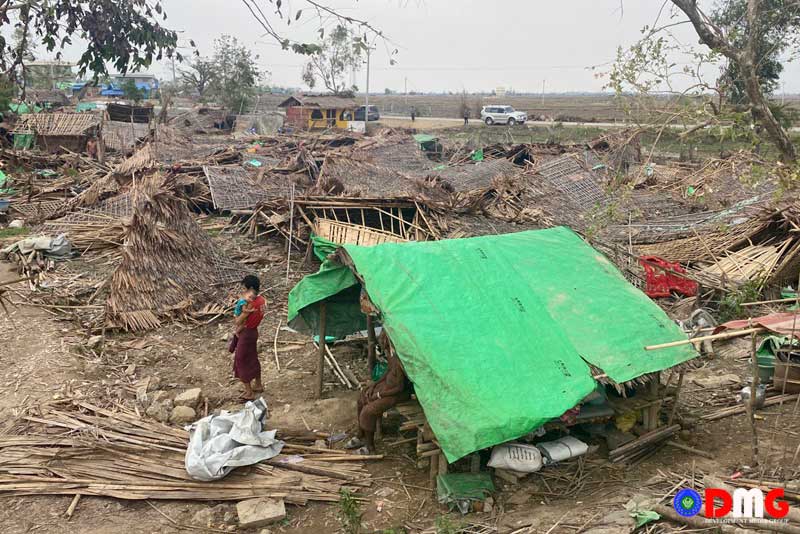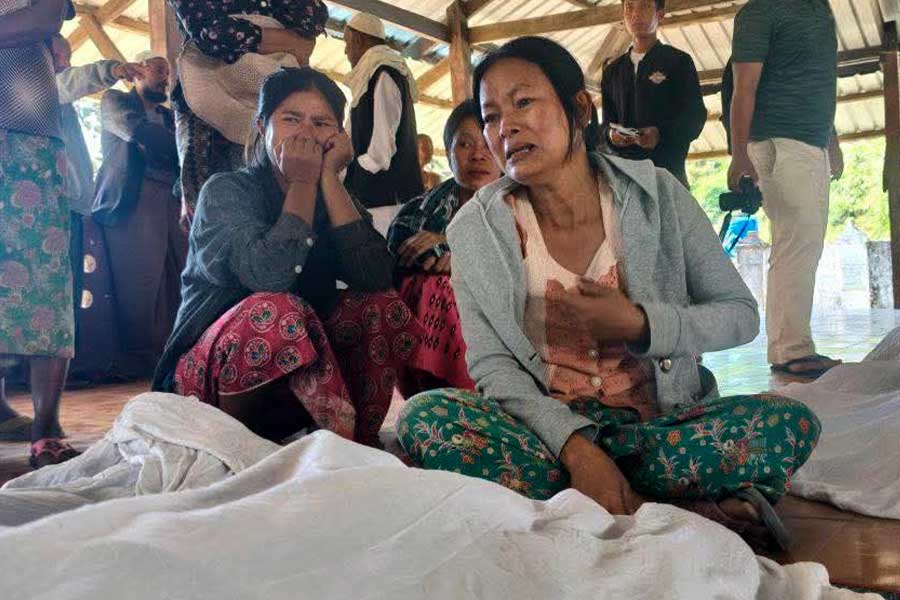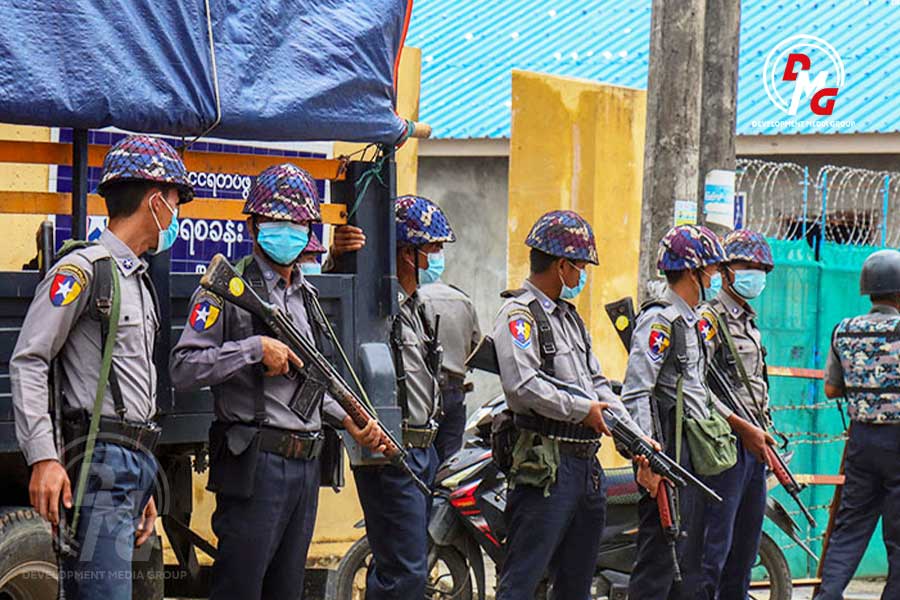- Junta expands naval presence along Arakan coast to regain lost territory
- Nearly 70 civilians and POW family members killed or injured by junta attacks in Arakan State in one month
- Junta accused of extorting money from detained Muslims in Sittwe
- Weekly Highlights from Arakan State (Jan 26 to Feb 1, 2026)
- Arakanese youth stabbed in Mae Sot urgently needs financial aid for medical treatment
Arakan State IDPs say few signs of recovery operations so far
“The storm came as another blow to us, who are already suffering from armed conflicts. For now, we need houses and rice as well as drinking water and toilets,”
20 May 2023

DMG Newsroom
20 May 2023, Sittwe
Displaced people in Arakan State have called for assistance to help rebuild their houses recently destroyed by Cyclone Mocha.
Many displacement camps in Sittwe, Rathedaung, Ponnagyun, Kyauktaw, Mrauk-U and Buthidaung townships were damaged by the cyclone, which made landfall over Arakan State on May 14.
Displaced people are having various difficulties as they still have not received relief aid from authorities or humanitarian organisations almost a week after the storm struck.
“The storm came as another blow to us, who are already suffering from armed conflicts. For now, we need houses and rice as well as drinking water and toilets,” said U Aung Hla Shwe, manager of the Wah Taung displacement camp in Kyauktaw.
The Wah Taung displacement camp is home to more than 900 people living in some 180 houses. Almost all the homes were destroyed by the cyclone, and the affected population urgently needs drinking water and healthcare services.
“We don’t even have rice to cook today. Some people have dried up rice that got wet during the storm. Some people at our camp have gotten sick because of [contaminated] water. So, we also need medicines,” said Daw Ma Aye Khaing from the neighbouring Taungmin Kalar displacement camp in Kyauktaw Township.
Almost all of the 90 houses in the Taungmin Kalar displacement camp were damaged or destroyed, leaving over 400 people homeless.
Many of those affected by the storm, including a large proportion of IDPs, have been forced to drink water from sources that were contaminated during the storm surge.
“We were already facing a drinking water shortage before the storm, and the problem has worsened as electricity is out due to the storm. So, we can only hope for donors to come,” said U Maung Maung Thein, manager of the Myo Ugaung displacement in Mrauk-U.
The Ahtet Myat Hle displacement camp in Ponnagyun Township also needs drinking water and food supplies, said camp manager U Phyu Thar Aung.
Tens of thousand of people remain displaced by past fighting between the Myanmar military and Arakan Army, in addition to tens of thousands of Muslims living in displacement camps in Sittwe and elsewhere for more than a decade, following intercommunal violence in 2012.
“Although some networks resumed services, telecommunications continue to remain challenging in some locations, making it difficult to fully assess the impact of the cyclone,” the United Nation High Commissioner for Refugees (UNHCR) said in a report on May 19.
“UNHCR’s field teams continue their efforts to assess the needs in Rakhine [Arakan] and Chin States, and the Magway and Sagaing regions. Initial reports indicate extensive damage on the ground, particularly in Rakhine, with Sittwe being the hardest hit. In all IDP camps, shelters have been severely damaged, requiring immediate emergency shelter support.”















.jpg)

